
Sara Hurvitz, MD, Associate Professor of Medicine at UCLA, discusses data supporting the elimination of anthracyclines in HER2-positive breast cancer treatment.

Your AI-Trained Oncology Knowledge Connection!


Sara Hurvitz, MD, Associate Professor of Medicine at UCLA, discusses data supporting the elimination of anthracyclines in HER2-positive breast cancer treatment.

Adding CDK4/6 and mTOR inhibitors to standard endocrine therapy has significantly improved outcomes in patients with hormone receptor-positive, HER2-negative advanced breast cancer, William J, Gradishar, MD, explained in a presentation at the 34th Annual Miami Breast Cancer Conference.

The so-called butterfly effect, in which a small creature can cause something on the scale of an earthquake merely by flapping its wings, is fodder for debate on whether the digital revolution in medicine can deliver on its promise for precision medicine.

It is imperative that surgeons remain involved in genetic counseling to meet the immense unmet need that exists for patients with breast cancer, given a shortage of available genetic counselors.
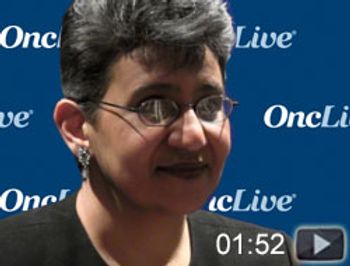
Anees B. Chagpar, MD, associate professor of Surgery (Oncology), director of The Breast Center at Smilow Cancer Hospital at Yale-New Haven, Yale Cancer Center, discusses novel agents for neoadjuvant triple-negative breast cancer (TNBC) treatment.

Adding ribociclib to frontline letrozole reduced the risk of disease progression or death by 40% in elderly patients with hormone receptor-positive, HER2-negative advanced breast cancer, according to a subgroup analysis of the phase III MONALEESA-2 trial presented at the 34th Annual Miami Breast Cancer Conference.

Mohammad Jahanzeb, MD, professor of Clinical Medicine, Hematology/Oncology, Sylvester Comprehensive Cancer Center, University of Miami Miller School of Medicine, discusses the APHINITY and ExteNET studies in breast cancer.

The combination of eribulin and pembrolizumab demonstrated promising objective response rates, including a complete response, for patients with metastatic triple-negative breast cancer.
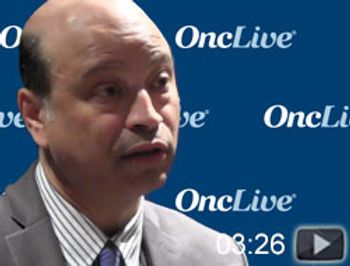
Debu Tripathy, MD, chair of Breast Medical Oncology, The University of Texas MD Anderson Cancer Center, discusses neoadjuvant treatment strategies in HER2-positive breast cancer.

Axicabtagene ciloleucel had an objective response rate of 76% and a complete response rate of 47% in patients with aggressive non-Hodgkin lymphoma followed for at least 1 month.

Prophylactic treatment with letermovir lowered the rates of cytomegalovirus infection and all-cause mortality compared with placebo for CMV-seropositive patients following an allogeneic hematopoietic stem cell transplant.
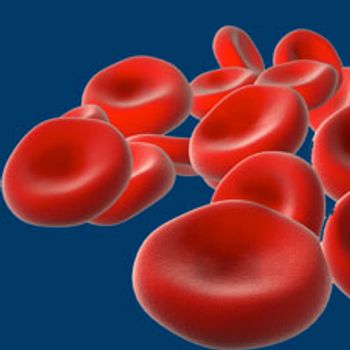
Vorinostat combined with tacrolimus and methotrexate represents a potentially effective combination to mitigate graft-versus-host disease in the setting of matched unrelated donor myeloablative conditioning hematopoietic stem cell transplant.
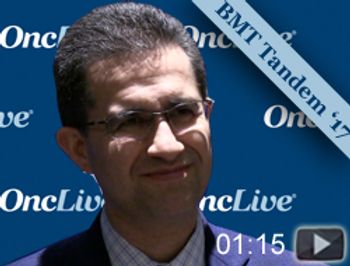
Francisco Marty, MD, Dana-Farber Cancer Institute, discusses the initial results of the Phase III trial evaluating letermovir for CMV after bone marrow transplant.
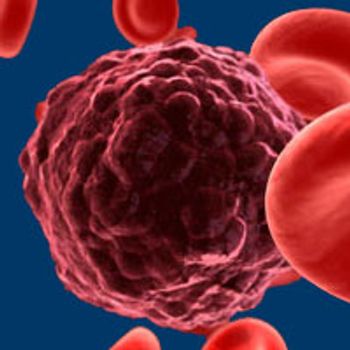
Proper care coordination and patient education are essential to the success of delivering chimeric antigen receptor T-cell therapy, particularly in preparing patients for potential adverse events.

A host of new and emerging therapies for acute and chronic graft-versus-host disease are on the horizon and include B-cell depletion, IL-2, inhibitors of JAK1/JAK2, extracorporeal photopheresis, and the BTK inhibitor ibrutinib.

Sergio A. Giralt, MD, reviewed emerging strategies to improve stem cell transplantation outcomes by reducing the risk of relapse using novel drugs and targeted radiotherapy.

Fred Locke, MD, Moffitt Cancer Center discusses the interim results of the ZUMA-I trial of Kte-C19, a CAR T-cell therapy.

Bart Scott, MD, Fred Hutchinson Cancer Research Center, explains the importance of the intensity of conditioning for stem cell transplants.

Robert Korngold, PhD, John Theurer Cancer Center looks back on the advances we've made so far in bone marrow transplant.

Treatment with an inactivated varicella zoster virus vaccine, known as V212, lowered the cumulative incidence rate of herpes zoster infection and complications for patients undergoing autologous hematopoietic stem cell transplantation.

Rates of early relapse post-autologous stem cell transplant in patients with relapsing multiple myeloma have not changed over time, but post-relapse survival among early relapsers has improved for patients transplanted after 2005 and for those relapsing since 2008.

Dr. Lancet of Moffitt Cancer Center explains the use of CPX-351 treatment compared to induction chemotherapy, for older adult patients with acute myeloid leukemia.

Partow Kebriaei, MD, discusses the Iomab-B clinical trial for older patients with acute myeloid leukemia.

According to data from a phase I/II clinical trial, carfilzomib can be safely combined with melphalan in a conditioning regimen prior to autologous hematopoietic cell transplantation in patients with relapsed multiple myeloma.

More patients with acute myeloid leukemia could proceed to transplant following treatment with CPX-351 compared with the traditional 7+3 chemotherapy regimen.

At the 2017 Genitourinary Cancers Symposium, Nicholas J. Vogelzang, MD, discussed diagnostic practices and emerging therapies in the field of bladder cancer.

The combination of cabozantinib and nivolumab, with or without ipilimumab, proved safe and active in advanced genitourinary cancers, particularly urothelial cancer.

Patients with PD-L1-positive metastatic renal cell carcinoma had a reduction in the risk of progression or death when treated in frontline with the combination of atezolizumab and bevacizumab instead of sunitinib, according to results of a randomized trial.
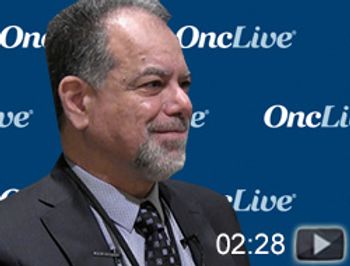
Fred Saad, MD, professor and chairman of Urology, director of Genitourinary Oncology, the University of Montreal Hospital Centers, discusses recent updates in active surveillance for patients with prostate cancer.

Thomas Powles, MD, Barts Cancer Institute, discusses durvalumab as a second-line therapy in locally advanced and metastatic urothelial cancer.